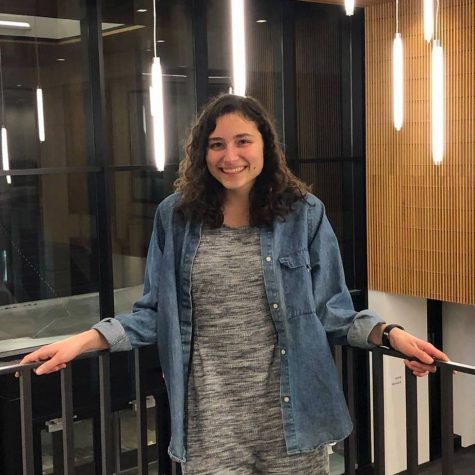Committee advocates recruitment, support of refugee students
October 31, 2019
In fall 2016, Farah AlHaddad ’17, a student from Syria, formed the Committee for Refugee Student Access (CRSA). Noting the continued violence in Syria and the strain it placed on many Syrian students, the committee set out to push for a conscious effort to recruit and accommodate refugee students at Macalester.
Since its formation, CRSA has sought “to educate itself and members of the campus community, including peers, faculty and administration, about the responsibility Macalester has to respond to the education crisis caused by widespread displacement,” according to a 2017 opinion piece by CRSA members in The Mac Weekly.
Gianna Brassil ’20 and Nahla Almbaid ’20 have served as CRSA’s leaders since AlHaddad graduated in 2017.
“[We] wanted to start a committee that would help admissions and the administration find best practices about recruitment and what to do once the refugees are on campus,” Almbaid said.
Brassil emphasized that CRSA’s goals go beyond simply bringing refugee students to campus.
“The committee isn’t just about the administrative element of recruiting the student, but it’s also about ensuring that… there would be an infrastructure for their wellbeing,” Brassil said.
CRSA has met with several campus departments and leaders to brainstorm how to best support refugee students at Macalester, including the Laurie Hamre Center for Health & Wellness, the Center for Religious and Spiritual Life, the financial aid office, Vice President for Student Affairs Donna Lee and President Brian Rosenberg.
In their years of advocacy, CRSA has focused on pushing the college to establish a full scholarship reserved for one refugee student per year.
Originally, CRSA designed their scholarship idea for a Syrian refugee-identifying student. Because of the Trump administration’s travel ban, however, the United States is no longer issuing student visas to Syrian nationals.
In light of this change, CRSA has altered their proposal, suggesting that the scholarship prioritize a Syrian refugee student already living in the United States, with a second-tier priority of a broader refugee-identifying student from the Middle East.
Almbaid said that while departments across campus received the idea favorably, gaining momentum has been difficult.
“We have [the] awareness and support of all of the key players on campus, but it’s just a matter of actually finding the money,” Brassil said.
While the scholarship remains an aspiration, CRSA has made other strides towards greater refugee inclusion at Macalester in recent years.
The frequently asked questions page for international student applications now clarifies that Macalester welcomes refugee applications; Macalester’s application now includes a box that students can check to identify themselves as refugees; the committee is working to add Macalester to an International Institute of Education database of recommended schools for refugee students.
Change is on the horizon for CRSA. Rosenberg, with whom they’ve worked closely, is leaving the college at the end of this academic year. Brassil and Almbaid, who are both seniors, will also be leaving the college this spring and handing leadership off to its younger members.
CRSA is a small group, but they hope to gain more student interest in the coming months. In search of new younger members, Brassil posted an application to join the committee in the Oct. 8 Mac Daily.
“Hopefully… next semester we’ll have some sort of speaker or event on campus,” Almbaid said.
“I think it’s time… for people to show their support for the initiative by coming out to the events, by mentioning the lack of geographic diversity at Macalester,” Brassil said. “That would be a helpful thing that people could do to support what we’re trying to do.”













